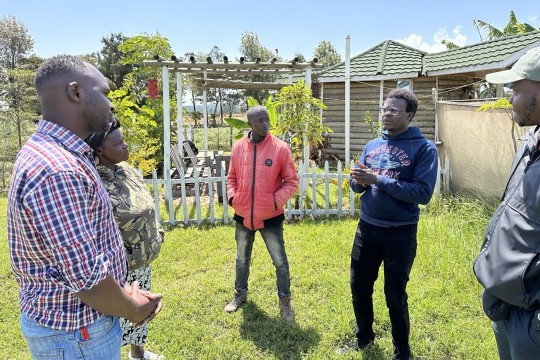
Nathan Williams
Assistant Professor
Nathan Williams
Assistant Professor
Bio
Dr. Nathan Williams is an Assistant Professor at the Golisano Institute for Sustainability at the Rochester Institute of Technology. His research focuses on data driven energy policy and planning in underserved communities, with a particular interest in the use of renewable and decentralized energy technologies to expand access to affordable, sustainable electricity. More broadly, he is interested in how infrastructure systems can be planned in an integrated and sustainable manner to support social and economic development in underserved communities. Dr. Williams’ work focuses geographically on sub-Saharan Africa and Tribal Nations in the United States. His work is transdisciplinary in nature, drawing on methods from engineering, finance, social science, and data science.
Before coming to RIT, Dr. Williams was an Assistant Research Professor at Carnegie Mellon University and an instructor at the Carnegie Mellon University Africa campus in Kigali, Rwanda. He also spent several years developing utility-scale renewable energy projects in South Africa. His interest in energy and development was sparked while serving as a Peace Corps volunteer in an unelectrified rural community in Burkina Faso. He has a B.S. in Physics and Mathematics from Whitworth University, a M.Sc. in Physics from Nelson Mandela University, and a Ph.D. in Engineering and Public Policy from Carnegie Mellon University.
Select Scholarship
Currently Teaching
In the News
-
May 1, 2025

Sustainability Ph.D. candidate finds purpose at RIT
Tunmise Raji came to RIT with a vision to harness technology for global good. He’s leaving prepared to advance energy solutions for underserved communities.
-
November 20, 2024

RIT professor helps to tackle energy access in rural Africa
Williams’ collaborative work tackles the subject of energy access in Sub-Saharan Africa. In 2015, the United Nations established Sustainable Development Goal 7 to ensure access to affordable, reliable, sustainable, and modern energy for all.
-
April 3, 2023

RIT Golisano Institute for Sustainability Ph.D. student wins Outstanding Graduate Woman
Sherralyn Sneezer was named this year’s Outstanding Graduate Woman for her commitment to working with indigenous communities to develop renewable energy systems on tribal land.







